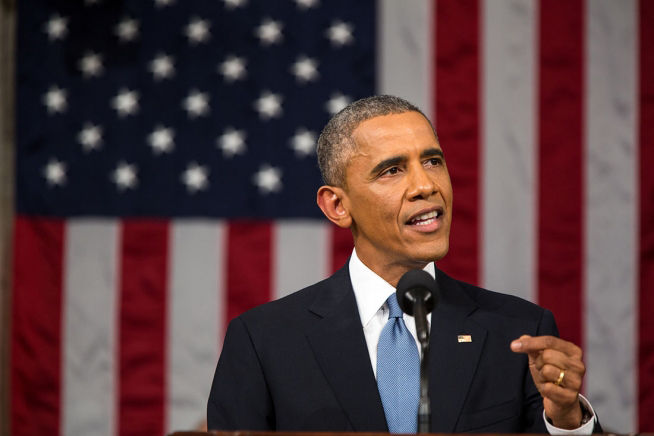Editorial: Repealing Obamacare without replacement is reckless
January 22, 2017
Former President Barack Obama’s health care law is likely to be repealed and possibly replaced within the coming months by the Republican-controlled Congress and President Donald Trump.
Tossing out the law without a well-vetted replacement would be disastrous for millions of Americans.
Americans with preexisting conditions can’t be denied health insurance because of the Affordable Care Act. Women aren’t seen as having a preexisting condition simply because they are women. Young adults are able to stay on their parent’s health coverage until they are 26. Insurance companies cannot drop your health insurance because you become ill. These are just a small portion of the rights and regulations that were established by the act.
The uninsured rate — the portion of the American population lacking health insurance — fell in 2016 to a historic low of 8.6 percent. This has been directly attributed to the Affordable Care Act and translates into 21.3 million more people with health insurance since the act was initiated in 2010.
So what does it mean if it all goes away tomorrow? The short answer is we’re not entirely sure. Republicans have been talking, and voting, on repealing the act from the beginning. Now that they have full control of Congress and the White House, action seems immanent and yet unclear.
The Congressional Budget Office released a report last week outlining how repealing the act would impact citizens. The nonpartisan office stated that 18 million people could lose their coverage in the first year after the law is repealed. The number of uninsured would then surge to 32 million by 2026. Premiums are also expected to increase up to 25 percent in year one and would double by 2026.
In Iowa, it is estimated that 240,000 people would lose health coverage. Moreover, the state could lose billions of dollars in federal funding, compounding an already hefty budgetary shortfall of $100 million.
You may not like the Affordable Care Act. You may loathe it and the president who signed it into law. But it is hard to deny the millions of people who currently have health insurance because of the law. Trump wasted no time in the Oval Office and has already signed an executive order that directs federal agencies to ease the regulations of the law.
What comes next is still shrouded in questions. Kellyanne Conway, an aide to Trump, said on a Sunday talk show that Trump will not let people go without coverage. During the transition of power, Trump also indicated he liked certain policies in the Affordable Care Act, including the provision that ensures young adults can stay on their parent’s health insurance until they are 26.
There is no doubt that the death of the Affordable Care Act is near. We hope that Trump and Congress work together with Democrats and citizens from across the country to reach a compromise.
Republicans would be smart to craft a replacement in the coming months that protects citizens and makes access to health care easier. Repealing the law without a set replacement ready would be a dangerous move that would cost many people their lives.
















